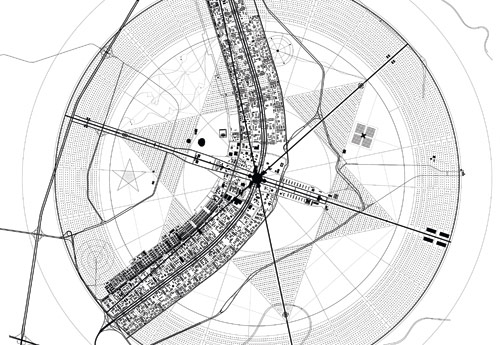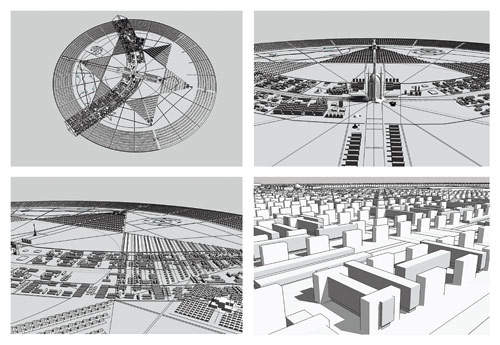2014
Jonas Staal
In the years 1944 and 1956, Brazil saw two cities emerge from two fundamental pilars of the country’s imagery, Spiritism and Modernism. The latter was the new capital, Brasília, which, built in a vacant area in the middle of the nation’s territory and inaugurated in 1960, has played an important symbolic role in forming the country’s image as a modern state. The first was Nosso Lar [Our Home]: a city which spiritists believe to hover above the earth ‘on an extensive region in the state of Rio de Janeiro (between the cities of Rio de Janeiro, Itaperuna and Campos dos Goytacazes)’ – as described by the famous medium Chico Xavier. According to Xavier, Nosso Lar is the place where the good spirits ‘de-incarnate’ after death, before preparing themselves for their re-incarnation on earth.

Although the metaphysical project of Spiritism and the administrative enterprise of Modernist architecture seem to run in opposition to one another, Jonas Staal’s project Nosso Lar, Brasília posits that their comparable attempts at engineering social structures and gatherings allow us to consider them as part of a parallel project.

Rather than adopting a linear perspective, Staal approaches the fields of art and architecture as spaces that allow us to engage with parallel, interrelated and sometimes opposing histories. Nosso Lar, Brasília therefore comprises a publication, maps, narrative video and a series of models that explore the similarities, as well as the differences, between the two cities and the historical movements they result from. Using these various components, the artist develops an infrastructure that engages with overlapping, conflicting or confronting understandings of time and spatiality, attempting to redefine our place not within but between multiple historical narratives. – NEM/PL